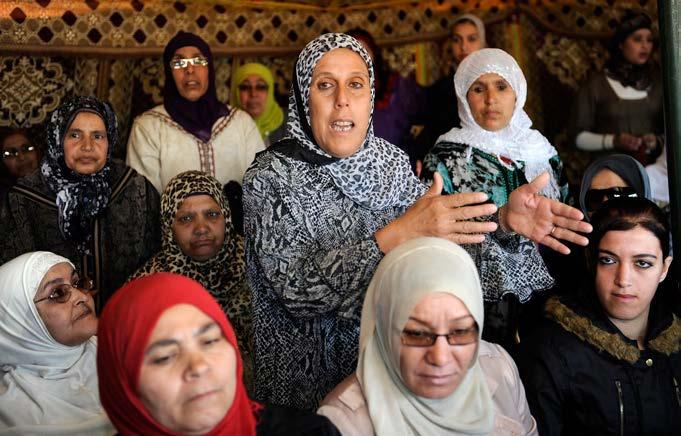IDLO
3. Challenges women encounter in accessing justice through customary and informal justice systems
Women face a range of challenges in accessing CIJ systems and achieving just outcomes. These challenges will vary depending on a range of factors including women’s identities, nature of the CIJ system utilized and the nature of their dispute or grievance. Women’s identities are an important influence. For example, women who are poor, migrants, with limited education, living in rural or remote locations, from a minority group or living with HIV/AIDS face distinct challenges.40 While some
challenges will be shared, intersectionality cannot be overlooked to generalize about women’s experiences. In addition, the challenges will vary depending on the CIJ mechanism in question, the broader socio-political context and the degree to which CIJ systems are recognized by formal law as legitimate justice services. Finally, the nature of the dispute or grievance for which a woman is seeking justice will also shape the challenges faced, with women’s
recourse to justice considered more acceptable in relation to some matters than others. All of these factors complicate and nuance the challenges women encounter in seeking justice through CIJ systems. A number of identified common challenges are set out below, related to social deterrents to seeking justice, limited awareness of rights and the law, discriminatory content of the law and rights-abrogating procedures and practices.
Social expectations and fear for personal safety Women can face significant social pressure to not report disputes or grievances to any justice mechanism. Often involved are social expectations regarding what constitutes a ‘good woman’, interpreted as a woman who maintains the peace and does not make trouble or speak out, especially in relation to family matters. In Myanmar, for instance, women describe the importance of bearing their burdens to ensure good karma and respect within the community.41 In other contexts, such as Afghanistan, it can be socially unacceptable for a woman to speak with a man without a male relative present, making reporting to male-dominated CIJ mechanisms in a confidential manner almost impossible.42
In addition, the social pressure and/ or personal preference not to report is connected to the fact that CIJ hearings often operate in public, with no anonymity for parties involved, including children.43 This is particularly pertinent in relation to violence against women and family disputes, such as intimate partner violence, child abuse, spousal neglect or inheritance disputes, where there is often a strong emphasis on resolution within the family and a perception of shame for these matters to be raised publicly. Reporting such crimes can be shameful for women who fear social stigma. In Uganda, for instance, issues of sex and sexuality
are taboo to speak about in public, constituting a barrier to women bringing up issues of sexual violence in CIJ forums.44 It is also relevant for neighbor and debt disputes, which people may prefer to resolve privately to maintain relationships and reputation. In other cases, particularly conflictor violence-affected settings, women can face intimidation and violence if they pursue justice, as do those who are seen to support such women.45 There are thus important social and personal safety consequences that challenge women’s ability to enforce their rights through CIJ mechanisms.
11






